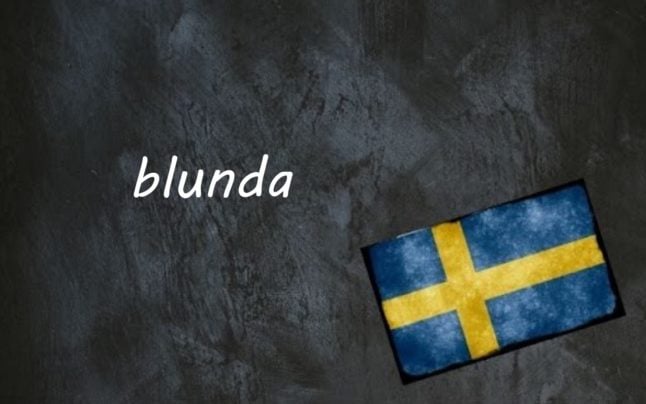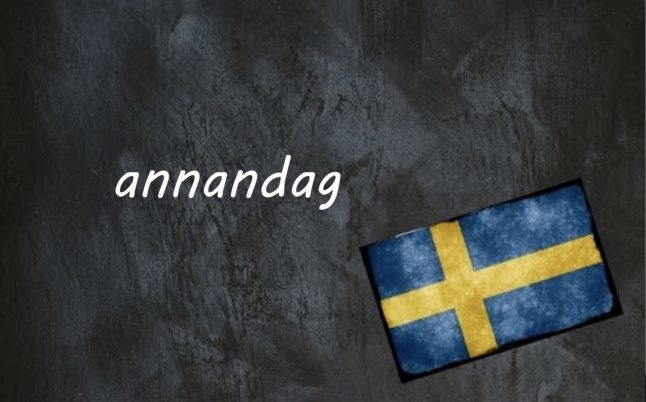Blunda means “to shut one’s eyes”, and can be used literally or figuratively.
In the latter sense, you usually use it with the preposition för, for example: det kan vara farligt att blunda för historien (it can be dangerous to ignore history); blunda inte för övergrepp! (don’t ignore assault!)
Old Norse had the word blundra with the same meaning, and the word probably shares an origin with the word blind (unable to see), found in Swedish, German and English among other northern European languages.
And blunda is still used in Icelandic, although there it has taken on the meaning “to doze”: this is an example of how the definition of a word can shift over time, which often happens if there are other competing synonyms.
Swedish also has the related word blund, which refers to a sleep. You often hear it in the negated sense, as in jag har knappt sovit en blund i natt (I barely got a wink of sleep last night).
Swedish speakers use the fictional name John Blund to refer to what English and German speakers know as the Sandman, a figure who sprinkles dust in your eyes to get you to doze off – hence the dust you may feel in your eyes the next morning.
Examples
Det är nästan omöjligt att nysa utan att blunda
It is almost impossible to sneeze with your eyes open
Blunda och hoppa
Close your eyes and jump
Don’t miss any of our Swedish words and expressions of the day by downloading our new app (available on Apple and Android) and then selecting the Swedish Word of the Day in your Notification options via the User button.



 Please whitelist us to continue reading.
Please whitelist us to continue reading.
Cool word, nicely explained 🙂